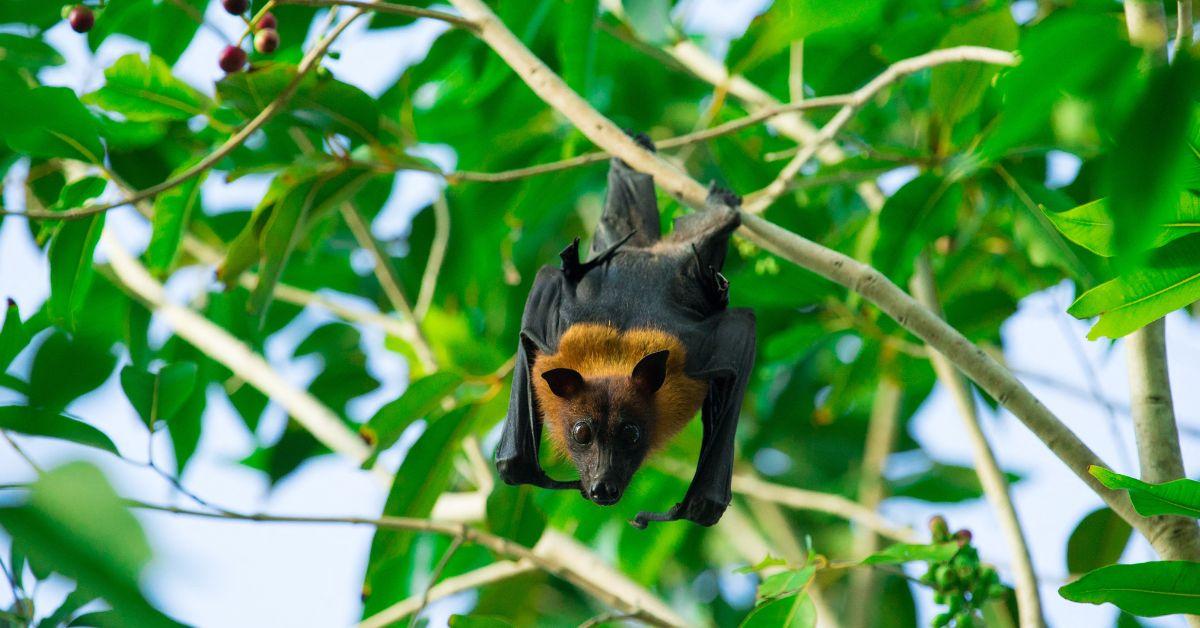Could Fruit Bats Unlock Diabetes Cure? Researchers Explore Flying Mammal as Potential Key to Stopping Disease

Fruit bats can consume large amounts of sugar without having health issues.
Jan. 17 2024, Published 9:03 a.m. ET
Scientists and researchers have long been trying to find a cure for diabetes, and an unexpected source may hold the key — fruit bats.
A team from the University of California-San Francisco is looking into the dietary habits of fruit bats, intrigued by their ability to thrive on sugary foods. The hope is that this knowledge could be harnessed for the benefit of humans, as fruit bats can consume large amounts of sugar without suffering serious health issues, even thriving on a diet of up to twice their body weight in sugary fruit daily.
Nadav Ahituv, PhD, director of the UCSF Institute for Human Genetics and co-senior author of the study, explained the significance of the bats' genetic system in controlling blood sugar.
In contrast to individuals with diabetes who struggle with insulin production or detection, fruit bats possess a genetic system that flawlessly regulates blood sugar. The goal is to leverage this insight to develop improved “insulin- or sugar-sensing therapies” for humans.
The study focused on the evolution of the pancreas and kidneys in fruit bats, particularly the extra insulin-producing cells and genetic changes that enable them to digest large amounts of sugar. Unlike insect-eating bats, fruit bats have evolved kidneys that retain vital electrolytes, facilitating their high-sugar diet.
Wei Gordon, PhD, co-first author of the paper, emphasized the importance of understanding high-sugar metabolism for addressing prediabetes, affecting one in three Americans. Using advanced single-cell technology, the researchers analyzed gene expression and regulatory DNA, revealing how cells in the fruit bats' pancreas and kidneys adapt to their diets.
- Culinary Cancer Cure? Surprising Foods Linked to Enhanced Anti-Tumor Immunity, Study Shows
- What Lies Beneath: NASA Scientist Believes Aliens May Have Found 'Perfect' Hiding Spot in Earth's Oceans
- Global Threat: Russia Insider Warns West of 'World War Using Nuclear Weapons' Amid Escalating Support for Ukraine
The fruit bat pancreas, with its increased insulin-producing cells, allows for efficient sugar absorption, while the kidneys have evolved to trap salts essential for their diet. The research highlights the role of regulatory DNA, once considered "junk," in helping fruit bats respond to fluctuations in blood sugar.
While some biological similarities to diabetes were identified in fruit bats, the evolutionary adaptation of their organs enables them to thrive on high-sugar diets.
Never miss a story — sign up for the Front Page Detectives newsletter. Be on the scene the moment news breaks.
The researchers underscored the significance of studying nature to find solutions for human health crises, noting that bats, with their unique abilities, hold valuable insights.
The findings are anticipated to be just the beginning of unraveling the complexities of these remarkable creatures. Ahituv expressed admiration for bats as "superheroes" with diverse superpowers, emphasizing that this research marks the initial stages of understanding the potential benefits they offer to human health.
Become a Front Page Detective
Sign up to receive breaking
Front Page Detectives
news and exclusive investigations.
